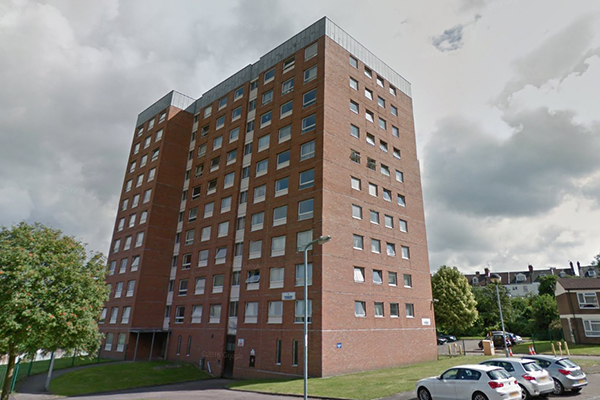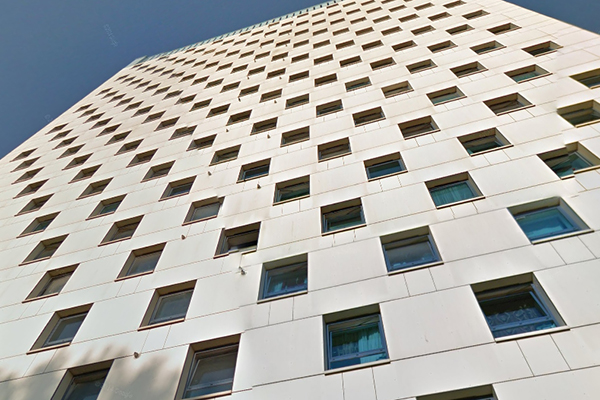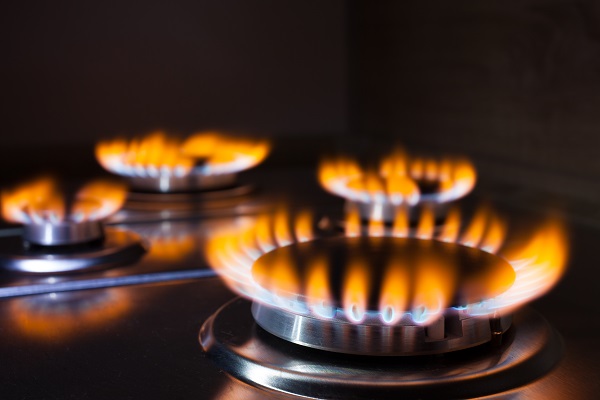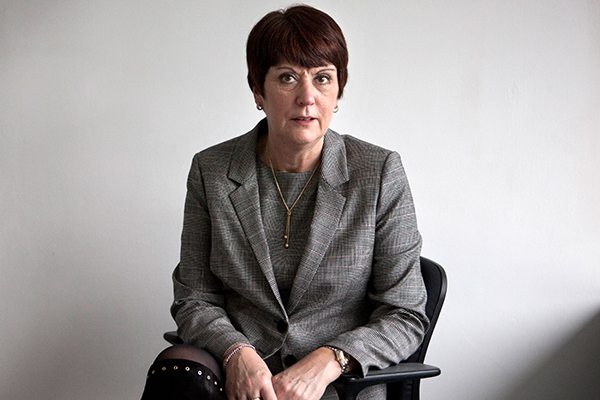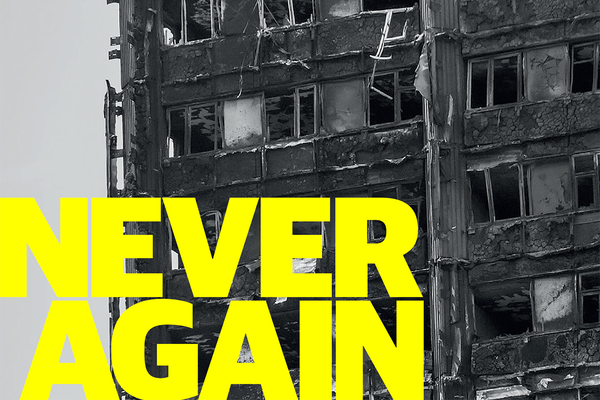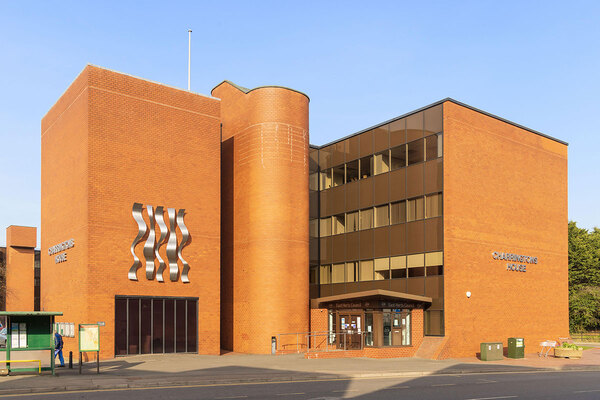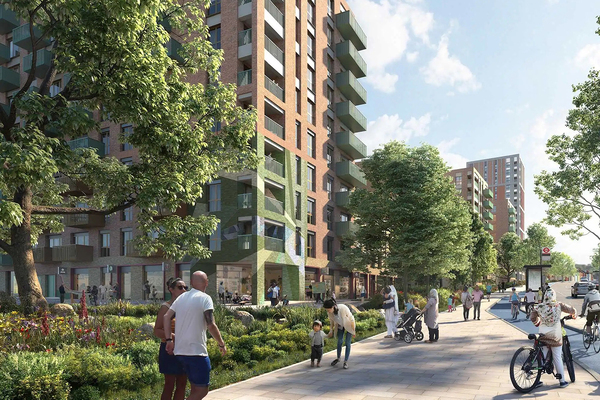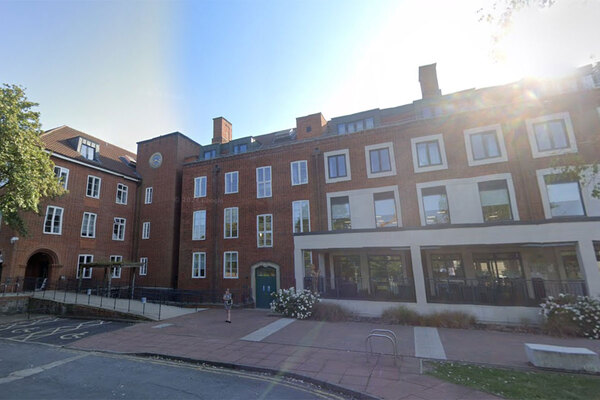You are viewing 1 of your 1 free articles
Council scraps ‘stay put’ policy over structural safety concerns
Rugby Council has scrapped its “stay put” policy at two of its estates after concerns were raised about the structural safety of the blocks in the event of a fire or explosion.
Rugby Council is the ninth landlord to carry out checks on its large panel system blocks because of concerns they may not be strong enough to withstand an explosion or fire.
The large panel system blocks in Rounds Gardens and Biart Place now have an immediate evacuation policy for residents.
Large panel system blocks are made of concrete panels with floors and walls that rest upon each other and are held together by their own weight.
Following a gas explosion at the Ronan Point tower block in Newham in 1968, which caused the block to partially collapse killing four people, the government told landlords of large panel system blocks to check they were strengthened to withstand an explosion of 5 psi. If not, the blocks should have the gas supply removed.
The Rugby tower blocks do not have a gas supply, but following Southwark Council’s discovery that four of its blocks with a gas supply might not have been strengthened to the required standard several other councils have checked their blocks and found they may not have been strengthened to the level expected.
Gentoo in Sunderland, Southwark, Hammersmith and Fulham, Tower Hamlets, Westminster, Lewisham, Haringey and Enfield Councils have all been carrying out further checks on their large panel blocks.
Rugby Council commissioned surveys of the blocks in 2016 and there have been more detailed surveys carried out during the past six months. The results of these surveys will included in a report to councillors for the next meeting at the end of April and the options for potential refurbishment or redevelopment of the site will be considered at this meeting.
A spokesperson for Rugby Council said: “The multi-storey blocks have stood safely since they were built around 50 years ago, and all previous fires within the blocks have been contained as designed. However, having removed some of the concrete within some of the flats, we cannot be completely sure that the blocks were built as designed and will perform as we expect in the event of a fire or explosion.
“The risk of fire or explosion is substantially reduced because there is no gas supply, and portable gas appliances are banned under the tenancy agreement. However, under the circumstances it is absolutely right to prioritise residents’ safety and we are asking all residents to evacuate their block immediately, in a calm and safe manner, should they hear the alarm.”
The Paper Trail: The Failure of Building Regulations
Read our in-depth investigation into how building regulations have changed over time and how this may have contributed to the Grenfell Tower fire:
The Hackitt Review
Photo: Tom Pilston/Eyevine
Dame Judith Hackitt’s (above) interim report on building safety, released in December 2017, was scathing about some of the industry’s practices.
Although the full report is not due to be published until later this year, the former Health and Safety Executive chair has already highlighted a culture of cost-cutting and is likely to call for a radical overhaul of current regulations in an interim report.
Dame Hackitt’s key recommendations and conclusions include:
- A call for the simplification of building regulations and guidelines to prevent misapplication
- Clarification of roles and responsibilities in the construction industry
- Giving those who commission, design and construct buildings primary responsibility that they are fit for purpose
- Greater scope for residents to raise concerns
- A formal accreditation system for anyone involved in fire prevention on high-rise blocks
- A stronger enforcement regime backed up with powerful sanctions
Never Again campaign
Inside Housing has launched a campaign to improve fire safety following the Grenfell Tower fire
Never Again: campaign asks
Inside Housing is calling for immediate action to implement the learning from the Lakanal House fire, and a commitment to act – without delay – on learning from the Grenfell Tower tragedy as it becomes available.
LANDLORDS
- Take immediate action to check cladding and external panels on tower blocks and take prompt, appropriate action to remedy any problems
- Update risk assessments using an appropriate, qualified expert.
- Commit to renewing assessments annually and after major repair or cladding work is carried out
- Review and update evacuation policies and ‘stay put’ advice in light of risk assessments, and communicate clearly to residents
GOVERNMENT
- Provide urgent advice on the installation and upkeep of external insulation
- Update and clarify building regulations immediately – with a commitment to update if additional learning emerges at a later date from the Grenfell inquiry
- Fund the retrofitting of sprinkler systems in all tower blocks across the UK (except where there are specific structural reasons not to do so)
We will submit evidence from our research to the Grenfell public inquiry.
The inquiry should look at why opportunities to implement learning that could have prevented the fire were missed, in order to ensure similar opportunities are acted on in the future.
